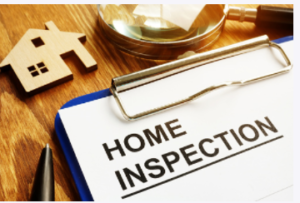A real estate building inspector enforces all relevant safety standards for new construction and home renovation projects. A building inspection is usually required before a permit is issued.
 Insurance companies and portfolio lenders also use a building inspection before investing in commercial real estate. It allows them to understand the actual cost of ownership.
Insurance companies and portfolio lenders also use a building inspection before investing in commercial real estate. It allows them to understand the actual cost of ownership.
Building Codes
Building codes are regulations that dictate how construction should be done. They establish minimum requirements legally enforceable by a local government or national authority. They are used by architects, engineers, builders, and contractors to ensure that structures meet the requirements for safety and quality.
The development of these standards follows a rigorous process that promotes openness, transparency and a balance of interests. It considers scientific and engineering principles and the experience of individual experts, construction and design professionals, and enforcement personnel. They are developed by the ICC, which has an expansive membership of governmental members who vote on how to respond to public comments and determine which model code will be published next.
Inspection Reports
An inspection report should be logically organized, provide precise descriptions of the findings, and include recommendations. The main body of the information may be broken down into sections corresponding to different home systems, such as electrical, plumbing, and heating and cooling. Some inspectors also include a section that describes general information about the property. For more information about the real estate building inspector, click here.
Many home inspectors have websites with sample inspection reports for prospective clients to review. Taking the time to read these samples can help you understand what an inspection report should contain and how it should be written.
Finding an inspector who follows a set of standards is also essential. If your inspector is not affiliated with professional organizations, looking for another one is a good idea. Also, ensure that the inspector includes a disclaimer in the report, as this can be helpful in a dispute. It’s also a good idea to ask your real estate agent for a recommendation.
Recommendations
The best way to find a good inspector is to ask your real estate agent for a recommendation. They’ve worked with many home buyers and can give you a list of trustworthy inspectors. However, ask if they’re getting any compensation for the referral.
In addition, you can check out the website of a professional organization such as ASHI or InterNACHI. These websites allow you to search for a local inspector with specific experience and qualifications.
A building inspector represents the local government and enforces safety standards for construction projects. They inspect residential and commercial buildings and can even review and sign off on building plans. However, they do not perform visual inspections of existing homes.
Cost
A building inspector can cost anywhere from $200 to $400 for a home inspection. The price is based on the home’s square footage and age. It also depends on whether the buyer wants a complete review or a visual check. A multi-family home, for example, takes more time to inspect than a single-family home. For more information about the real estate building inspector, click here.
A home inspector can help you avoid expensive repairs or renovations that might be needed after you move into a new house. Buying a house is usually the largest purchase you’ll ever make, so getting your potential dream home inspected by a qualified professional is worth the investment. The home inspector can point out issues that may be a deal-breaker and suggest ways to negotiate with the seller.
A real estate building inspector visually inspects the property, typically a home. Based on the results of an inspection, a buyer can choose to proceed with the sale, request specific repairs from the seller, or cancel the sale.
Home and building inspectors both evaluate structures, but they have very different job functions. In general, building inspectors represent local government and visit homes or other buildings during the construction process to ensure they meet local code regulations. Home inspectors, on the other hand, perform visual evaluations of existing properties to give their clients (generally buyers and sellers) an idea of a property’s condition.